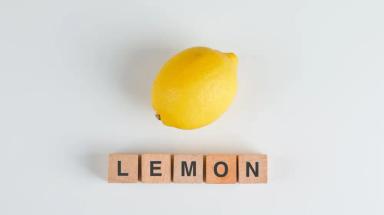Summary
Technical translation refers to the process of conveying technical content from one language to another. Technical texts can either be directly related to technology or they can mean other types of translation that include technical and specific terms such as legal, medical, and scientific fields. There are many problems a technical translator might face. However, these problems do have solutions.
What is considered technical translation?
Technical translation, in its general meaning, refers to conveying content that includes technical terms that are specific to the field of the content from one language into another. This might typically include the medical field, the scientific field, and the legal field. However, the technical field in its specific meaning refers to the process of conveying content in the technical field from one language into another, such as content that is related to technology, information technology, and everything that is related to this field.
Technical translation is usually done for all technical documents such as catalogs, guidebooks, booklets, articles, research papers, and other related documents. Technical translation is considered to be one of the most important fields of translation, whether it means the technical field or the general field that includes other technical documents in other specific fields such as the medical field.
Technical translation usually requires specific qualifications as it is harder than other types of translation and it requires specific attention. Technical translation always has to be one hundred percent accurate and translators must do their best to avoid committing mistakes that could negatively affect the target audience.
The technical field has so many problems and challenges. Luckily, there are solutions that only professionals know.
Get our Technical Translation Services now!
What are the lexical problems of technical translation?
Just like any other field and type of translation, technical translation has many lexical problems. One of the most important lexical problems of technical translation is polysemy. Polysemy typically refers to the different definitions and meanings of the same word. This means that the same word in the source language might have different meanings in the target language or the same word in the source language might have many meanings in the source language which might be hard to identify and translate.
Technical translators who are not yet professional and experienced enough might face this lexical problem since not having enough knowledge of the subject and the terms might lead to choosing wrong and inaccurate terms in the target language. Also, there is another problem which is homonymy which means two or more words that have the same spelling and pronunciation but don’t have the same meaning. In addition to that, technical translators might face other problems such as collocations, synonymy, and near-synonymy.
As mentioned before, the technical field is way more complex than other fields, whether the content is related to technology or related to law, medicine, science, or other technical texts.
Get our Scientific Translation Services now!
What are the problems of translation of technical and scientific texts?
When it comes to the translation of technical and scientific texts, one must know that there are many problems that might arise. These problems typically include:
Lexical problems
One might always face lexical problems when it comes to technical and scientific texts such as polysemy, homonymy, synonymy, and collocations. This might confuse technical and scientific translators as many of them don’t always know which terms to choose. Lexical problems always lead to serious consequences if technical translators didn’t know how to handle them.
Technical jargon
Technical jargon or technical terms are very large in number and technical translators find it hard to choose the right technical term in the target language that is equivalent to the term in the source language. Usually, most technical terms have equivalents in all languages but technical translators might not always manage to find the right term in the target language.
Complex sentences
The technical and scientific fields include many sentences that are hard to understand. Complex sentences are one of the most important problems in the technical field as well as in the scientific field. Technical translators might not be able to understand all sentences, expressions, and abbreviations in the texts which might lead to inaccurate or even false translations.
Read also: Mastering Technical Translation: Types & Qualifications of Top Translators
Lack of experience
Unfortunately, not all technical and scientific translators are specialized in these fields and even specialized translators themselves might lack the required experience. Lack of experience always leads to problems especially when it comes to the technical and scientific fields since inexperienced translators might not always understand the right meaning of the texts due to their complexities.
Insufficient sources
It is never easy to find a reliable source to be able to find the answers to one’s questions. The reason is that there aren’t sufficient sources one can rely on. The technical field is no exception, as finding many reliable sources is almost impossible, the reason is that they aren’t numerous and they are hard to find. This more often than not leads to inaccurate and false translations both in the technical and scientific fields.
Unable to understand the target audience
While translating, one must always keep the target audience in mind. This does not exclude the technical and scientific fields, since one must know, study, and understand the target audience. This is the only way that guarantees appropriate translation that is convenient. The target audience might not have the same experience, knowledge, and background as the author of the source text.
Read also: Know more about technical translation characteristics rates and examples
Long, detailed texts
The complexity and length of technical and scientific texts might result in a high risk of mistakes and errors. For that reason, translators might find it hard to translate long, detailed texts in terms of accuracy. Not to mention the fact that some translators might not be patient enough to handle such long texts and they might get frustrated which leads to unprofessional translation results.
Literal translation
While technical and scientific translations must not be creative, it’s a mistake to assume that literal translation is the go-to option when it comes to the technical and scientific fields. This is another vital problem that technical and scientific translators face, as not all of them know when literal translation can be used and when it must not be used. Literal translation can lead to problems of inaccuracy.
Lack of glossaries
Not all technical and scientific translators are provided with specialized glossaries that contain jargon, abbreviations, and other important details. This problem is faced by many technical and scientific translators as they find it hard to accurately translate texts and documents without specialized glossaries. This is also due to inexperienced translators who still underestimate the importance of glossaries.
Lack of research
Not all technical and scientific translators conduct research enough to have an accurate translation. Unfortunately, this is reflected in the translation outcomes as the translation might lack accuracy. Research is an integral part of the translation and in the cases where research lacks, the outcomes are directly affected.
Technical translation solutions
Each problem has its solution. However, when it comes to the translation field, it takes professionals to know how to solve the problems that arise and the challenges they might face.
Read also: What qualifications do you need to be a proofreader?
Technical translation solutions:
Linguists
The only way to avoid lexical problems is to have technical and scientific translators who have experienced linguists and who always make sure to understand everything that is related to linguistic problems before translating. This means that they can study the different terms or they might simply have a fair knowledge of the technical words that are subject to homonymy, polysemy, and synonymy.
Experience in technical jargon
Technical translators who have experience in this field will know all there is to know about technical jargon and terms. This comes after years of studying the technical field which allows them to have enough information about the source and the target language in terms of technical words and expressions. This makes the process of finding equivalents much easier.
Understanding complex sentences
Complex sentences are usually easy to solve if technical and scientific translators read enough about these topics and fields. The more one reads about a specific topic, the easier it gets to understand the sentences, abbreviations, and terms that are closely related to this topic or to this field. This is also achievable through research. However, it takes professionals to be able to succeed.
Enough experience
Before translators decide to embark on this challenging journey, they must get enough experience to be able to accurately translate technical and scientific texts. They also have the option to specialize in the technical field and in the scientific field. This allows them to avoid committing mistakes and it also allows them to have accurate results and outcomes.
Find reliable sources
Finding reliable sources is usually a result of deep research. Technical and scientific translators always need reliable sources to be able to come up with accurate and correct translations. To be able to achieve this, technical and scientific translators are called to refer to specialized dictionaries and glossaries along with conducting thorough research to find reliable sources.
Understanding the target audience
While learning a new language, translators must always study the target audience as well. This helps them learn about their target audience in future technical and scientific projects. Only professionals know the importance of knowing the target audience. Therefore, identifying the target audience helps translators identify the technique of translation that they should use.
Read also: How to become a medical translator?
Division of long texts
For long, detailed texts, professional and experienced technical translators can divide their texts into groups and paragraphs. They can work on each paragraph separately. This helps them avoid committing mistakes as they will be focusing on each paragraph and not on the entire text all at once. Also, they can take short breaks and then resume their work after they rest.
Avoiding literal translation
Professional technical translators know when to use literal translation. They know that not all technical and scientific texts can be literally translated. Their human touch is enough to make the outcomes accurate and appropriate. This is only achievable if technical translators are able to understand the source text and accurately translate it into the target language.
Buying glossaries
Professional technical translators always tend to buy specialized glossaries and dictionaries. They know that this is the only way that guarantees high-quality outcomes since glossaries are usually considered to be a reliable source that one can blindly rely on. For that reason, always being one step ahead is the way they can use to be able to deliver accurate technical translation.
Conducting enough research
Technical and scientific translators can conduct research directly after reading the source text for the first time. It must be thorough research since it is an integral part of the whole process of translation. Also, they can conduct additional research while translating, to be able to accurately deliver the meaning of the source text.
Read also: How to become a certified translator in UAE






